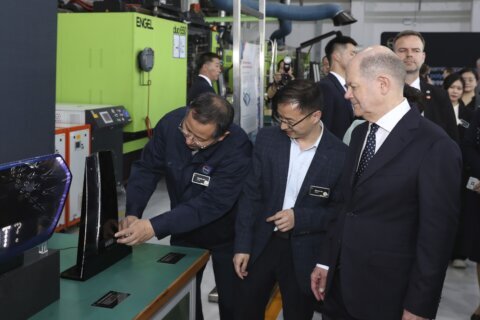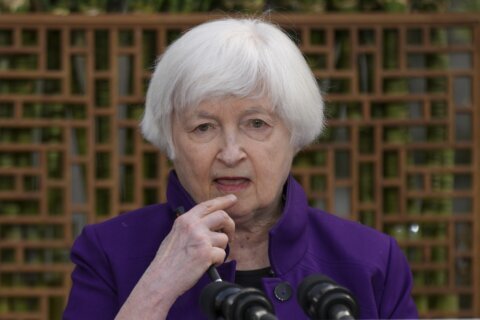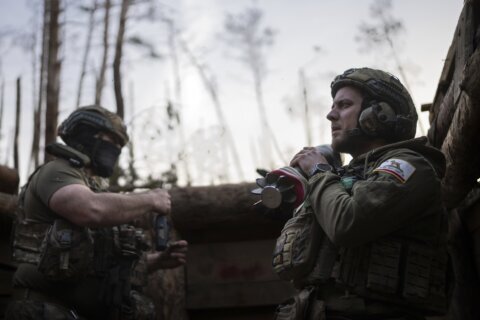ISTANBUL, Turkey (AP) — The Ukrainian government is seeking to extend a wartime deal that allowed the country’s grain to get to nations in Africa, the Middle East and Asia where hunger is a growing threat, a top Ukrainian official said Thursday after the latest talks on prolonging the agreement.
The talks in Istanbul involved Turkish, Russian, Ukrainian and United Nations officials but yielded no decisions for an extension. The deal is due to expire next Wednesday.
Additional discussions are expected in an online format, Ukrainian Deputy Prime Minister Oleksandr Kubrakov said. He said in a statement released after the talks that the grain deal “should be extended for a longer period of time and expanded.”
“This will give predictability and confidence to both the global and the Ukrainian markets,” Kubrakov said. Previous extensions lasted 120 days and 60 days.
However, Russia opposes both broadening the agreement and its “indefinite expansion,” Russian Deputy Foreign Minister Sergei Vershinin said after the talks. Moscow is considering proposals made by U.N. Secretary-General Antonio Guterres and “the work, the contacts continue,” Vershinin said.
If there is no consensus by May 18, the deal “will cease to exist,” the Russian diplomat said.
Ukraine and Russia are both major global suppliers of wheat, barley, sunflower oil and other affordable food products that developing nations depend on. In July 2022, Moscow and Kyiv signed an agreement with the United Nations and Turkey that outlined a process for shipments from three of Ukraine’s Black Sea ports to resume amid Russia’s invasion of its neighbor.
It has since been renewed twice, most recently in March. According to the U.N., the agreement establishing a safe shipping corridor from the Ukrainian ports to Turkey has allowed over 30 million metric tons of grain and foodstuffs to leave the country.
Russia has repeatedly complained that a separate agreement with the U.N. to overcome obstacles to shipments of its fertilizers that was part of the July package has not produced results.
U.N. spokesman Stephane Dujarric told reporters at U.N. headquarters in New York on Thursday that contacts would continue during what he called “a delicate phase.”
U.N. officials are “trying to do whatever we can to ensure that this very important initiative continues and that, as well, we see progress on our efforts of facilitation of Russian grain and fertilizer,” he said.
According a U.N. statement, proposals discussed at the Thursday meeting included resuming operation of the Togliatti-Odesa ammonia pipeline from Russia to Ukraine, a longer extension of the deal and the running of the Istanbul-based Joint Coordination Center that oversees the deal’s day-to-day implementation.
Vershinin reiterated Thursday that Moscow “first and foremost” is defending “Russia’s national interests, its agriculture producers, producers of fertilizers.”
“An initiative that brings unilateral benefits can hardly be recognized and confirmed by all,” he said.
The Turkish Defense Ministry said in a statement after the talks that the sides displayed “constructive approaches.”
___
Edith M. Lederer contributed from the United Nations in New York.
___
Follow AP’s coverage of the war in Ukraine: https://apnews.com/hub/russia-ukraine
Copyright © 2024 The Associated Press. All rights reserved. This material may not be published, broadcast, written or redistributed.







